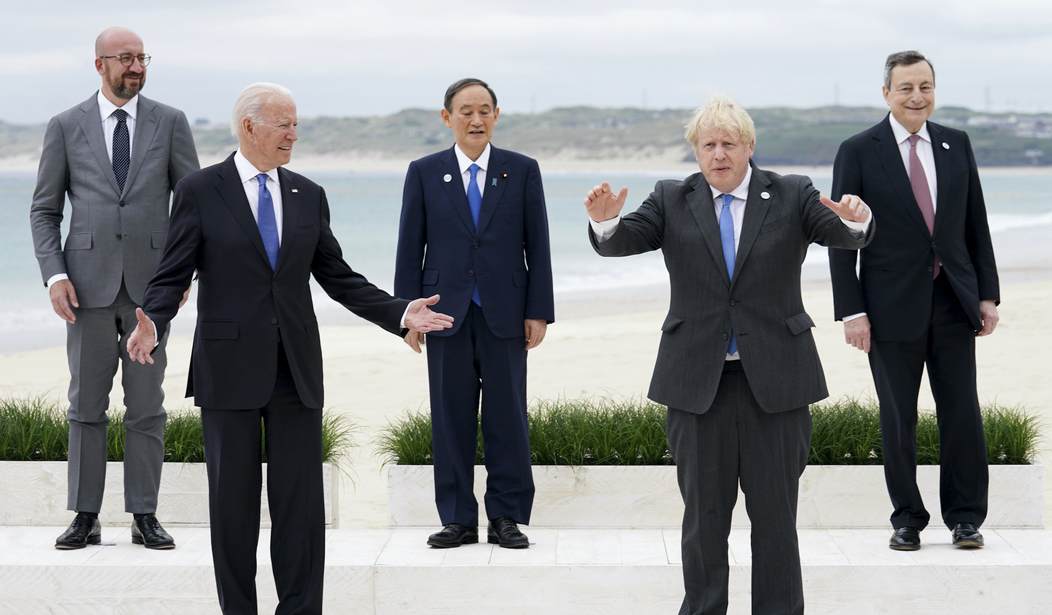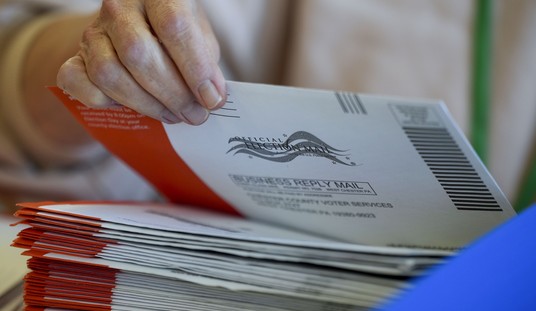Here at home, it has taken surprisingly little time for us to become inured to the massive foul-ups committed by President Biden. This is not to say it has all become acceptable or permitted, just that now, when there is a mushroom cloud emanating from some issue — the border, the economy, the vaccine rollouts, the Constitutional aggressions, etc. — our initial reaction these days is, “Well, of COURSE its a complete shambles…”
Yet, as we grapple with the perpetual cleanup of Biden’s domestic fiascos, it may be less realized that he is also managing to make just as big of a mess of things overseas. Yes, the Afghanistan debacle reigns supreme. Our NATO partners were completely flummoxed by Biden’s actions, but coming out of that affair there are other ways things are unspooling with our foreign partners.
In a speech given by the European Union Internal Market Commissioner, Thierry Breton, during his visit to the U.S. there was a strong indicator of how bad things have become. “There is a growing feeling in Europe – and I say this with regret – that something is broken in our trans-Atlantic relations.” This is in reaction to the recent talks that were held between the US, Great Britain, and Australia in defense initiatives, the result being that it scuttled prior deals that had been struck with France. This is said to be a severe sign of disloyalty by President Biden.
“I planned this visit to the U.S. weeks ago with a positive agenda, to deepen EU-U.S. cooperation [but] something has changed. There is a strong perception that trust between the EU and U.S. has been eroded. It is probably time to pause and reset our EU-U.S. relationship.”
While this rift is partially due to a huge deal that was arranged for French submarines, it is a larger issue felt throughout the EU, and the Afghanistan pullout is a primary problem. In that disastrous mission to exfiltrate from the country, Biden did so without many agreements from our allies, leaving their people at risk in the process. These new talks, at the exclusion of the Europeans, means that a planned trade summit between the U.S. and the EU in Pittsburgh next week is very possibly going to be canceled.
This is hardly the global policy savvy we were told a career politician such as Biden possesses.
Even with the British-Aussie deal in place, there have been issues with the UK. There were reports on how Biden was keeping Boris Johnson out of the loop during the Afghan exit, resulting in Johnson’s own Parliament holding Biden in contempt. While Johnson has been properly glowing in his words to the media, there are undercurrents of problems. Just in the way the administration has behaved with the press in front of Boris Johnson has been embarrassing, as there is a simmering issue over the way reporters were treated Monday at the Johnson-Biden meeting in the White House, with Press Secretary Jen Psaki laying the blame for the confrontational treatment at the feet of the British leader.
Another component making Biden’s foreign policy difficult is the lax manner in which he has appointed ambassadors. As of now, he has only two ambassadors appointed in his eight months in office. Adding to this is his prior claim of wanting to appoint seasoned people with international experience, not rewarding posts based on political favors and fundraising prowess. Yet, there he is doling out nominations to check writers, and even naming former Obama fixture Rahm Emanuel as Ambassador to Japan.
After years of being told by the press that the world resented America as a result of Trump’s nationalistic focus (something that defied the other claim in the media, that Trump was in Putin’s back pocket), we now are expected to overlook Biden’s massive self-created problems abroad. Beyond the catastrophe he orchestrated in Afghanistan, he has been casually negligent or outwardly hostile to many of our foreign partners.
We were long told that the people of Europe did not like us under Trump, with polls trotted out indicating waning approval. Today, it is the leaders of Europe who are voicing the strongly-worded criticisms, and more than a popularity contest, those low marks carry far more impact in the global scheme of relations.














Join the conversation as a VIP Member